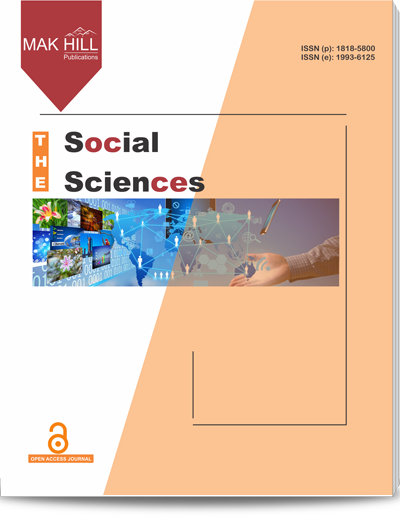
The Social Sciences
ISSN: Online 1993-6125ISSN: Print 1818-5800
Abstract
Over the years, the purchasing power has shifted from the grow ups to the teenagers and young adults, especially the students. Adults are no longer the only targeted customers for the entrepreneurs and market alike; the youngsters are fast becoming the main consumers and buyers in many business. Many studies have discussed the topic of purchasing power, financial saving and management at international, global and national level, more than ever right now since the world’s economic status is considerably rocky at the moment. As the youngsters are now old enough to experience financial independence and manage their personal expenditure, they are also old enough to face financial crisis. Thus, it is important for them to have the awareness and knowledge about financial management to avoid from falling into the hole of economic failure and debts. In this study, the researcher wished to study the factors that affect the spending attitudes among the university students. Therefore, two objectives particularly have been lined to act as a guide. To identify the relationship between socio demographic profile and peer influence towards spending attitude of UiTM students and to examine the effects of socio demographic factors (gender, educational level and income receive) on UiTM student’s spending attitude. In order to achieve that questionnaires were distributed to 300 students before the data were collected and analyzed. The result indicated that there were positive relationship between all the independent variables with dependent variable. From the findings, it was revealed that there was a significant difference among selected demographic profile (gender, educational level and income received per semester) with spending attitude. Thus, all the hypotheses were supported and the objectives were also achieved.
How to cite this article:
Zuraida Mohamad, Kartini Mat Rashid, Nurul Syuhada Baharuddin and Norudin Mansor. Antecedent Affecting Spending Attitudes: A Case of Malaysian University Students.
DOI: https://doi.org/10.36478/sscience.2016.7455.7460
URL: https://www.makhillpublications.co/view-article/1818-5800/sscience.2016.7455.7460